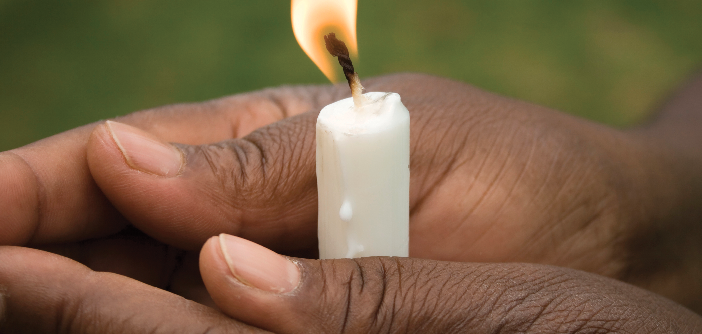By Melissa Wuske
Burundi Woman Awarded for Saving Lives
The Aurora Prize, “an international initiative recognizing the power of the human spirit,” gave its most recent award to Marguerite Barankitse. Barankitse witnessed many of her neighbors killed from the Hutu at the beginning of the Burundi civil war in 1993. Barankitse, a member of the Tutsi, started a mission that rescued and cared for 30,000 children and refugees from both people groups.
In her acceptance speech, Barankitse said, “Our values are human values. When you have compassion, dignity, and love, then nothing can scare you, nothing can stop you. No one can stop love—not armies, not hate, not persecution, not famine, nothing.” Since the war ended, she’s opened a hospital.
George Clooney, a cochair of the Aurora Prize selection committee, said, “Marguerite Barankitse serves as a reminder of the impact that one person can have, even when encountering seemingly insurmountable persecution and injustice.”
Pfizer Blocks Its Drugs from Executions
Drug manufacturer Pfizer recently decided to block the use of its drugs for executions by lethal injection. “With Pfizer’s announcement, all FDA-approved manufacturers of any potential execution drug have now blocked their sale for this purpose,” said Maya Foa of Reprieve, a human rights advocacy group. “Executing states must now go underground if they want to get hold of medicines for use in lethal injection.”
The company explains its decision this way: “Pfizer makes its products to enhance and save the lives of the patients we serve” and “strongly objects to the use of its products as lethal injections for capital punishment.”
The decision reflects mounting concerns about botched executions and overall objections to the death penalty. “A company in the business of healing people is putting its reputation at risk when it supplies drugs for executions,” said Thomas P. DiNapoli, New York state comptroller. “The company is also risking association with botched executions, which opens it to legal and financial damage.”
Online Series Encourages Christian Parents
A new web-based show helps Christian parents see how God is working in the lives of others and how he can work in their families. The 12-episode series called Parent Compass profiles real families facing real challenges. Episodes feature parents whose children have faced physical illness, families struggling with drugs, parents facing financial difficulties, and families experiencing grief.
“The way to manage life, family, and to parent is to follow Jesus Christ. Every episode begins with a verse and ends with a verse and is brought alive through the episode. There’s a variety of issues, backgrounds, and family sizes. What’s the same is their compass, and the compass is Christ,” said executive producer Natalie Jones. “No one has to parent alone. God is waiting for us to ask for help.”
Gloves Turn Sign Language to Text
Navid Azodi and Thomas Pryor, sophomores at University of Washington, created gloves connected to a computer via Bluetooth that detect hand movement in order to convert sign language into text and spoken word.
While the invention has potential, early versions have garnered criticism because they only facilitate one-way communication between people who have hearing difficulties and those who do not. “A lot of the feedback that we’ve been receiving goes down to this idea that we are not understanding the culture—there’s a whole deaf culture around this—and by no means are we trying to interfere or impose something in that culture or community,” Azodi said.
Now they are working to better understand the facial expressions that go along with American Sign Language to make new versions. “By no means have we completely tackled that but we are moving in that direction,” said Azodi.
Melissa Wuske is a freelance editor and writer. She and her husband, Shawn, live and minister in Jamaica Plain, Massachusetts. Find her work online (melissaannewuske.com).



Comments: no replies